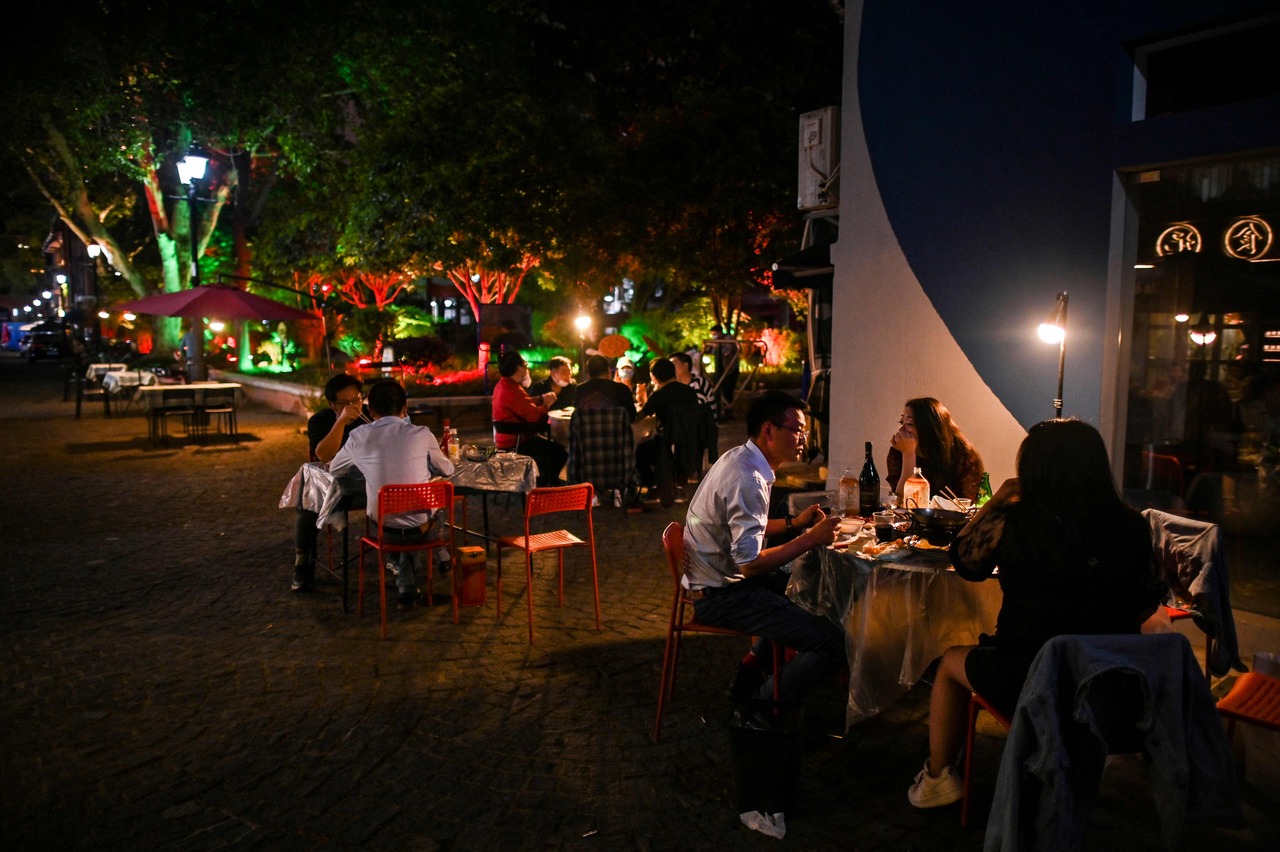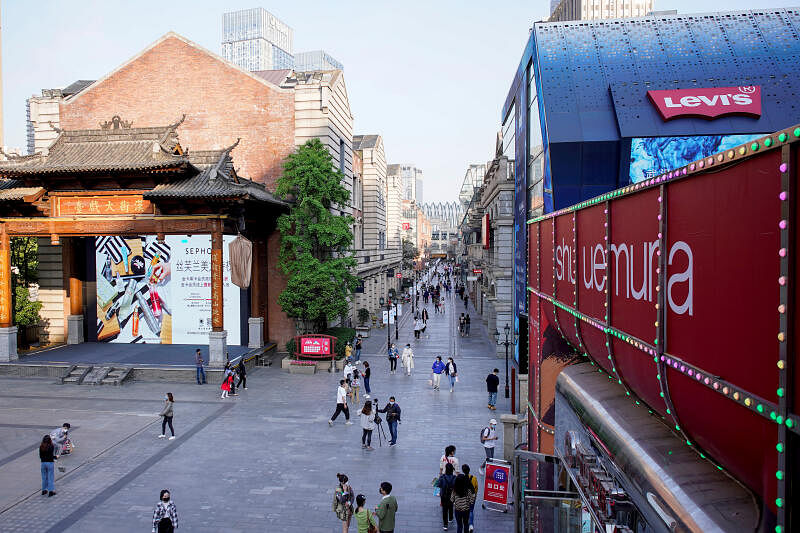Coronavirus: F&B, retail suffering even as Wuhan emerges from lockdown
Sign up now: Get insights on Asia's fast-moving developments

People eat outdoors in Wuhan on April 16, 2020.
PHOTO: AFP
WUHAN - Cantonese restaurant owner Wang Jing estimates she has lost three million yuan (S$605,000) after the city was shut down for more than two months to curb the Covid-19 spread.
As the authorities gradually began lifting movement restrictions in the city leading up to reopening it last week, Madam Wang also restarted her 11-year-old business.
Throughout the lockdown, she had been supplying food to a medical team from Guangdong and offering takeaways for regular customers.
"For now, we offer delivery on apps like Meituan and Ele.Me but it's still very few orders because not everyone in Wuhan appreciates Cantonese food, so we're struggling," the 66-year-old said.
The restaurant, which can seat up to 400 people over two floors, is usually packed on weekends and has a monthly turnover of one million yuan.
But with mass gatherings not allowed, business has been tough. Utility bills have gone unpaid while she's tried to continue giving her 10 employees a salary.
"I told myself that if we can hang on till July or August, then it will be okay," she said.
The food and beverage industry has been hard hit by the outbreak - restaurants for whom the Chinese New Year is a big revenue source had to offer refunds after the lockdown was announced on Jan 23, just two days before the holidays - and many have shuttered for good.
According to government statistics, 73 per cent of shops selling crayfish - a popular local snack - have resumed operations, mostly doing takeaways and delivery. It is unclear what proportion of the rest have been shut.
A walk down Han Street on a Saturday afternoon, a popular shopping district along the Chu River, showed about one in three shops was open, mostly high-street brands like Levi's, H&M and Uniqlo. More local offerings like a bookstore, a photo studio and a gastropub promoting Corona beer were still shut.
At Yishion, a local fashion outlet, customers were made to sanitise their hands, scan a health code and take their temperature before being allowed into the store. A shop assistant said the store is limiting the number of outfits that each customer can try, and the togs are disinfected after each use. So far, she had disinfected three outfits that day.

People walk outside a shopping complex after Wuhan lifts its lockdown, on April 9, 2020.
PHOTO: REUTERS
Others in the fashion industry like Ms Qiu Beiwen, who works in fashion merchandising, is unsure when she can go back to work, or if her company even has a future.
"It's something we've been trying not to think about since all of us are just trying to survive and get through the days," she said.
Madam Qiu now spends most of her day helping out at her husband's Sichuanese barbecue restaurant in Panlongcheng, a suburb close to the airport.
There are signs that retail has been struggling.
Most Wuhan malls The Straits Times visited were still shut, or only had F&B outlets open offering takeaways. Cafes like Starbucks and Costa Coffee have taken the additional step of setting up makeshift counters at entrances where customers are handed their purchases. Ordering is done on a mobile phone app.
Last week, dozens of shop owners protested outside a mall in Wuhan demanding a rental reduction, a rare show of dissent in a country where such public displays of unhappiness are swiftly shut down.
In videos that were swiftly scrubbed off social media, stall holders were seen sitting outside the Grand Ocean Department Store as police officers looked on.
"Exempt rental for a year or refund the lease," they had chanted.
Smaller mom-and-pop stores said they were promised "help", but details have been scant and business grants are usually claimed retroactively, making cash flow a problem in the meantime.
At his shop selling drinks, snacks and cigarettes, a shopkeeper, 52, who wanted to be known only as Mr Sun, worried about his business.
"As a neighbourhood shop, we depend on the residents around here but people are still afraid to come out (because of the virus)," he said.
And with entertainment venues like cinemas and karaoke joints still closed, the city's residents are looking for other ways to pass the time, many taking to parks to enjoy the cool spring weather.
Some, like the Wuhan Garden Expo Park, have even waived entry fees indefinitely to encourage visitors back out.
On a Tuesday evening, scores were out at the Hankou Jiangtan Park along the banks of the Yangtze River, with small families flying kites, and others simply strolling among the reeds.
"Usually my friends and I would be in a mall, watching a movie or shopping," said university student Gillian Tang, 20, who was with a friend.
"I suppose it's healthier being out here. We wouldn't come to this park if not for this special time."


